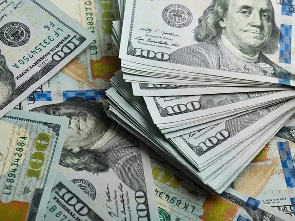The dollar was on track for its fifth straight day of declines against the yen, which was at a seven-week high against the greenback on Friday as investors sought Japan’s safe-haven currency due to monetary policy, U.S. election uncertainty and the latest U.S.-China political tensions.
The dollar, after falling to 104.270 yen earlier in the session – its lowest level against Japan’s currency since July 31 – last traded at 104.38, down 0.33% on the day.
While the dollar was up against a basket of currencies it was on track for a weekly decline after two weeks of gains. Aside from political uncertainty Boris Schlossberg, managing director of FX strategy at BK Asset Management said Japan’s policy of yield curve control was also a factor as it was pushing up real interest rates.
“Japanese market conditions are much tighter than they seemingly appear despite QE from the Bank of Japan,” said Schlossberg. “That’s creating a distinct and significant tilt toward the yen.”
While U.S. equities have kept close to their record highs, Schlossberg said dollar weakness may signal more volatility to come ahead of the Nov. 3 U.S. elections where President Donald Trump with face-off with Democrat challenger Joe Biden.
“Markets always hate uncertainty. At this point everybody is convinced that an unambiguous win is not the most likely scenario,” he said.
Schlossberg also pointed to a Trump administration plan to ban WeChat and video-sharing app TikTok from U.S. app stores starting Sunday night, blocking Americans from the Chinese-owned platforms over national security concerns.
“It’s showing the diplomatic tug of war is not being resolved. The tensions are heightening rather than easing,” he said. “That’s not something the market likes to see.”
At its meeting, the Bank of Japan maintained its minus 0.1% short-term interest rate target and a pledge to cap 10-year bond yields around zero, as widely expected.
Tokyo markets will be closed on Monday and Tuesday next week, so investors positioning for thin liquidity could also have played a role in Friday’s yen move.
The New Zealand dollar strengthened overnight and hit its highest in a year and a half in early London trading, after the country’s finance minister sounded positive about the economy in television interviews. The Reserve Bank of New Zealand meets next week.
The Australian dollar was down slightly versus the U.S. dollar, at $0.7298. The euro fell slightly, to $1.1833, and was set for a small weekly loss.
While strong British consumer spending helped sterling earlier in the day as investors bet on a solid recovery from COVID-19 induced lockdowns but it failed to hold its gains and was last down 0.25% against at $1.2940.
“The market would be a lot more excited about this news if it felt the UK was well on its way toward recovery. But now with a huge resurgence in infections, there’s a serious threat of a secondary lockdown which could bring this recovery to a grinding halt,” said BK’s Schlossberg.
The currency fell sharply on Thursday when the Bank of England said monetary policymakers had been briefed on how to implement negative rates, but recovered later in the session.
Business News of Tuesday, 22 September 2020
Source: CNBC
Dollar falls against the yen on political uncertainties
Entertainment












